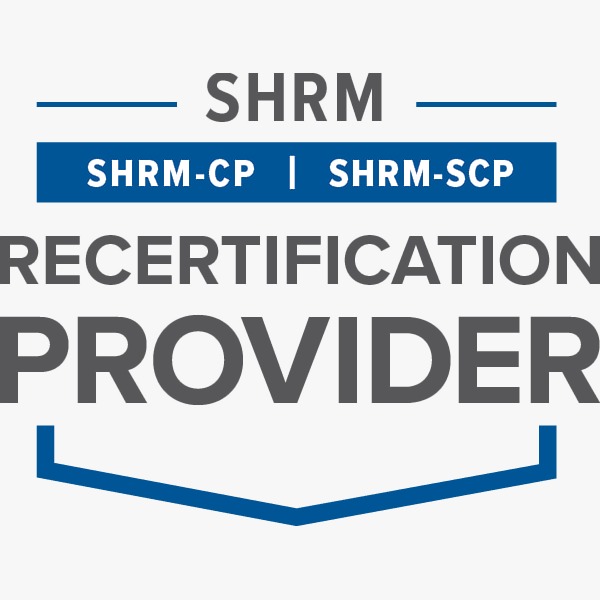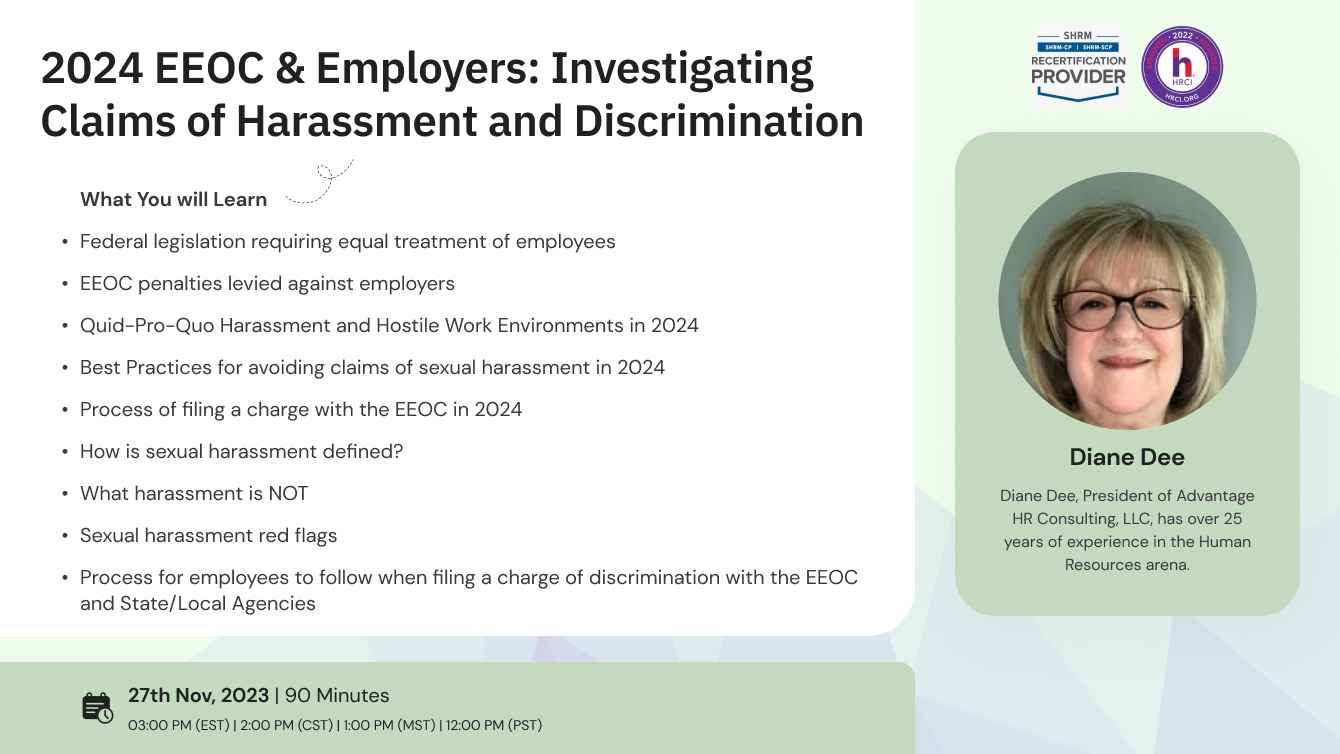- Topics
- Webinars
- Products & Services
Welcome To Biggest Online compliance Platform By LOCGFX Pvt. Ltd.
Human Resource & Payroll
In 2023, organizations continue to bear legal and moral responsibilities for promoting diversity in their workplaces and upholding compliance with all equal employment opportunity rules and regulations. Regrettably, workplaces have not always been inclusive for women and minorities, and many individuals have encountered prejudicial behavior while seeking employment or during their employment.
While the current laws have improved the working lives of many, there are still serious issues that require attention and action. Human Resource professionals are especially important for creating hospitable and inclusive work environments.
Policies that discriminate against protected classes of individuals, either explicitly or accidentally, are illegal. Thus, even unintentionally discriminatory practices that disparately impact those that are vulnerable to prejudicial treatment must be prevented.
Investigating an employee’s claim of discrimination or harassment requires immediate action on the part of employers to satisfy the recommendations of the Equal Employment Opportunity Commission (EEOC). The EEOC strongly recommends that employers swiftly investigate and resolve employees’ complaints of workplace harassment and discrimination. If an employee lodges a complaint against a colleague or the employer itself, an investigation is a required step since courts have ruled that failure to investigate on the part of an employer is akin to discrimination.
Responsiveness to a complaint and an investigation will not only yield the best information and evidence, but it will also enhance both the investigator’s and employer’s credibility. Investigations can help the organization identify and resolve internal problems before they become widespread. Given that every complaint has the potential to become a lawsuit, employers should investigate every case in a manner in which it can be presented to a court of law, if necessary. As potentially disruptive as investigations can be, they must be prompt, thorough and effective to ensure all parties’ protection.
- Federal legislation requiring equal treatment of employees
- EEOC penalties levied against employers
- Quid-Pro-Quo harassment and Hostile Work Environments in 2024
- Best Practices for avoiding claims of sexual harassment in 2024
- Process of filing a charge with the EEOC in 2024
- How is sexual harassment defined?
- What harassment is NOT
- Determining if the harassment is severe or pervasive
- Sexual harassment red flags
- Process for employees to follow when filing a charge of discrimination with the EEOC and State/Local Agencies
- Common reasons employees state for not filing a claim
- Charges of retaliation and discrimination
- Formal complaints and the investigative process
- Functions of the EEOC
- Disparate treatment v. disparate impact
- Various forms of harassment and applicable court cases
- What employers can expect once a charge is filed
- Conciliation process
- Legislation regarding forced arbitration: Ending Forced Arbitration of Sexual Assault and Sexual Harassment Act
- Mediation process
- EEOC determinations
- Front Pay in lieu of job reinstatement
- Tips when dealing with the EEOC
- Affirmative Action programs
- The cost of non-compliance in 2024
- Senior Leadership
- Managers
- Supervisors
- Project Team Leaders
- Human Resources Professionals
- Operations Professionals
- Recruiting Professionals
- Employees

Diane holds a Master Certificate in Human Resources from Cornell University’s School of Industrial and Labor Relations and has attained SPHR, SHRM-SCP, sHRBP, and HRPM® certification.
Diane is a member of the National Association of Women Business Owners and the Society for Human Resource Management. Additionally, Diane performs pro bono work through the Taproot Foundation, assisting non-profit clients by integrating their Human Resources goals with their corporate strategies.

SHRM -
Compliancevent is recognized by SHRM to offer Professional Development Credits (PDCs) for the SHRM-CPSM or SHRM-SCPSM. This program is valid for 1.5 PDCs for the SHRM-CPSM or SHRM-SCPSM. For more information about certification or recertification, please visit - portal.shrm.org.

HRCI -
This webinar has been approved for 1.5 HR (General) re-certification credit hours toward California, GPHR, HRBP, HRMP, PHR, and SPHR recertification through the HR Certification Institute.
The use of this seal is not an endorsement by the HR Certification Institute of the quality of the activity. It means that this activity has met the HR Certification Institute’s criteria to be pre-approved for re-certification credit.
Sign up now on compliancevent.net. Visit compliancevent.net/webinar to discover a wide range of webinars from industry specialists. Tick on either ‘live webinar’ or ‘on-demand’, and simply click on ‘buy now’ to get enrolled.
You can refer compliancevent to anyone in your social circle. Explore your industry with your colleagues by getting them signed up on compliancevent.net today!
Go for the topic of your keen interest on compliancevent.net. Tick on ‘live webinar’ and get enrolled! Easy registration, transparent transaction.
You can request for an on-demand webinar that records the live webinar for you. After the webinar ends, you will have full access to the webinar’s recording. You can also explore compliancevent offline to order your webinar DVDs, flash drives and transcripts.
If you can’t attend the live webinar, simply go for the ‘on-demand webinar’ for the same price! Now, the live webinar recording will be saved in a cloud storage for you to access anytime from anywhere.
compliancevent offers both hard and soft copies of the webinars. It contains all the highlights as well as comprehensive descriptions of the webinar, so you never miss out a single detail.
After attending the live webinar, your certificate will be emailed to you. You can download it and add more charm to your professional score.
At the end of each webinar, you have the opportunity to interact with your industry experts, where you will get answers to all your queries.
Can’t attend the live webinar? compliancevent has got you covered! You can always switch to the on-demand webinar from your portal. You can also get your hands on the webinar’s DVD/flash drive and transcript. So order them now!
compliancevent brings a variety of options for offline learning. Order your DVDs, flash drives or transcripts now to have a lifetime access to compliancevent webinars. You can also go for on-demand recordings. Download and watch it anytime from anywhere in the world!
